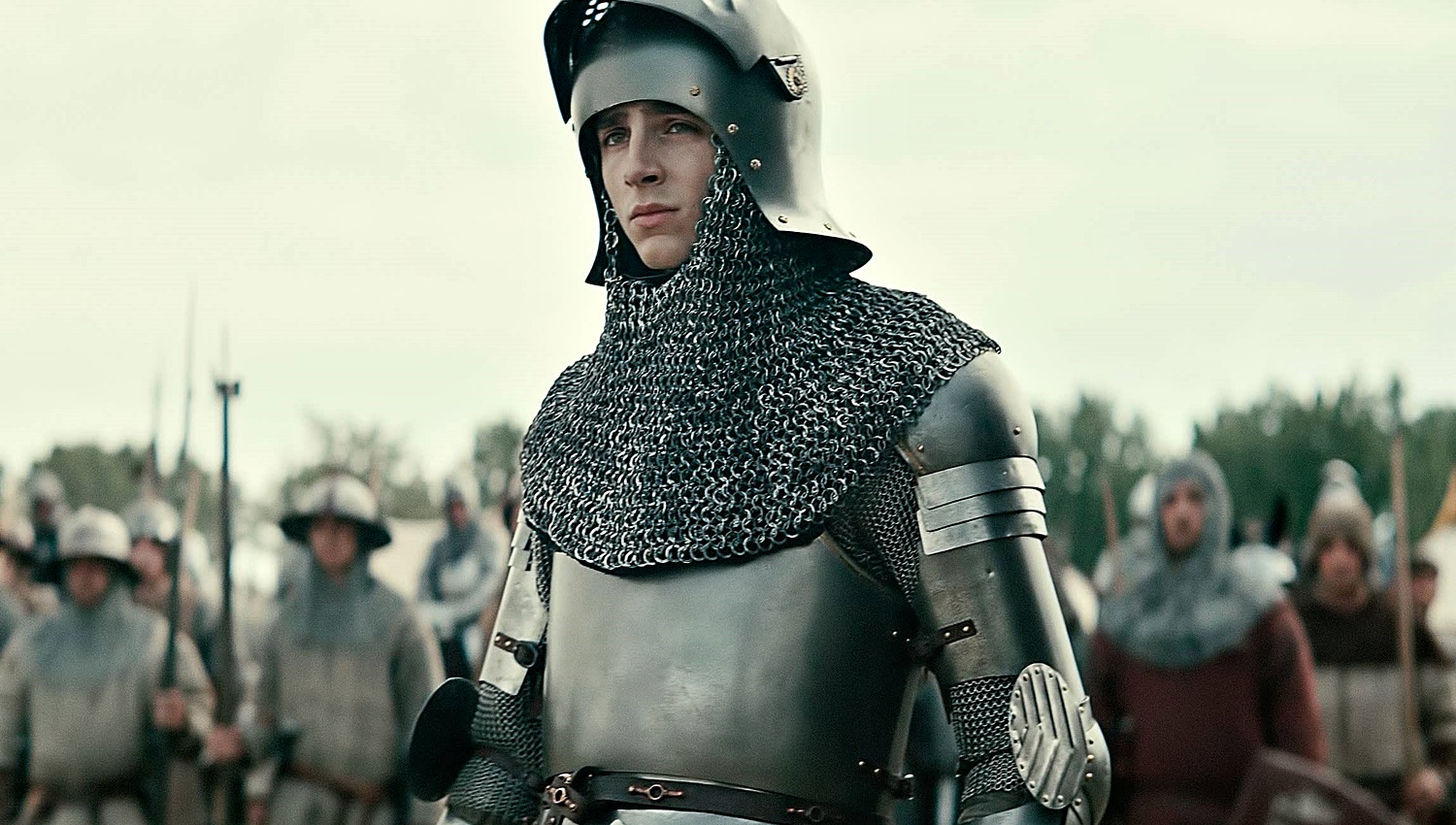
The King
Dustin Chase
Filmmaker David Michôd (“Animal Kingdom,” “The Rover”) and fellow Australian Justin Kurzel (“Macbeth,” “True History of the Kelly Gang“) have more in common than hailing from the same country. Both are visionary filmmakers, not directors who can see the future of cinema necessarily, but artists who create an entire film around an initial or singular point of view. There’s a singular element from each of their films that represents the whole like a totem. In “The King,” it’s the understated color pallet of gray hues that fill the screen top to bottom. The stone grain texture mixed with the fashionable chain-mail and all the understated complexities in between reinforces the look he’s going for. If period pieces are not your thing, “The King” isn’t likely to change that perception. The visual allure of Oscar-nominee Timothee Chalamet’s (“Call Me By Your Name,” “Beautiful Boy”) presence on film sustains the picture even when the editing does not.
King Henry IV (Mendelsohn) has summoned his eldest son, the wayward Hal (Chalamet) from Wales to inform, he will not ascend to the throne. Hal has no ambitions to rule, yet refuses to watch England decline into further despair as his incompetent younger brother, Thomas of Lancaster (Chapman), continuing to wage his father’s pointless wars. Fate puts the crown on Hal’s head as King Henry V of England, and his father’s death brings a brief calm to the land. An assassin sent by France interrupts the contemplative new young king’s restoration and although he resists the invitation to wage war, a second and third act forces him to act. Hal’s most trusted friend Sir John Falstaff (Edgerton) will aid in the long march to France where they will be outnumbered in men by the overconfident French.
The visual allure of Oscar nominee Timothee Chalamet’s presence on film sustains the picture even when the editing does not.
The majority of Michôd’s vision here rests on the shoulders of Chalamet, the only reason “The King” is receiving film festival status and the levity Netflix has given it. As one of the studio’s weaker award contenders, the fascination with all things Chalamet has kept it in the conversation for now. For much of the film, Chalamet’s Hal is sponge-like, soaking up what others have to say or do around him, choosing his words wisely. That juxtaposed with his rousing speech before the battle has quite an effect. That speech along with other scenes that begin leaning on emotion are cut short by the editing that seems determined to keep the viewer on the surface and the story trudging along to the next historical event.
Never has the early 15th Century looked so indirectly fashionable as the costumes mirror Restoration Hardware’s color pallet. Everything on screen cultivates the singular vision Michôd has for “The King.” As impressive as it looks, the artistry rarely translates into the viewer’s investment toward the plot nor does it provide much entertainment value. “The King” has much to say about nobility, children waging pointless wars on behalf of old men, and corruptibility. Chalamet’s performance exhibits sorrow through duty without some big, showy moment where he leaves his preferred life behind for duty. Edgerton’s Falstaff is one of the weaker elements and his performance an impersonation of Russell Crowe’s Robin Hood character. Pattinson’s brief appearance at the end of “The King’s” horseback road trip is a rare showy, but an ultimately ineffective moment. Depp’s equally brief role services the story far more than more of its more obvious moments. Twice Oscar-nominated musical composer Nicholas Britell (“Moonlight,” “If Beale Street Could Talk“) delivers another meditative original score that reinforces Michôd’s understated cause.
Final Thought
Timothee Chalamet’s allure and range on full display in visionary director David Michôd’s introspective monarchy drama.
